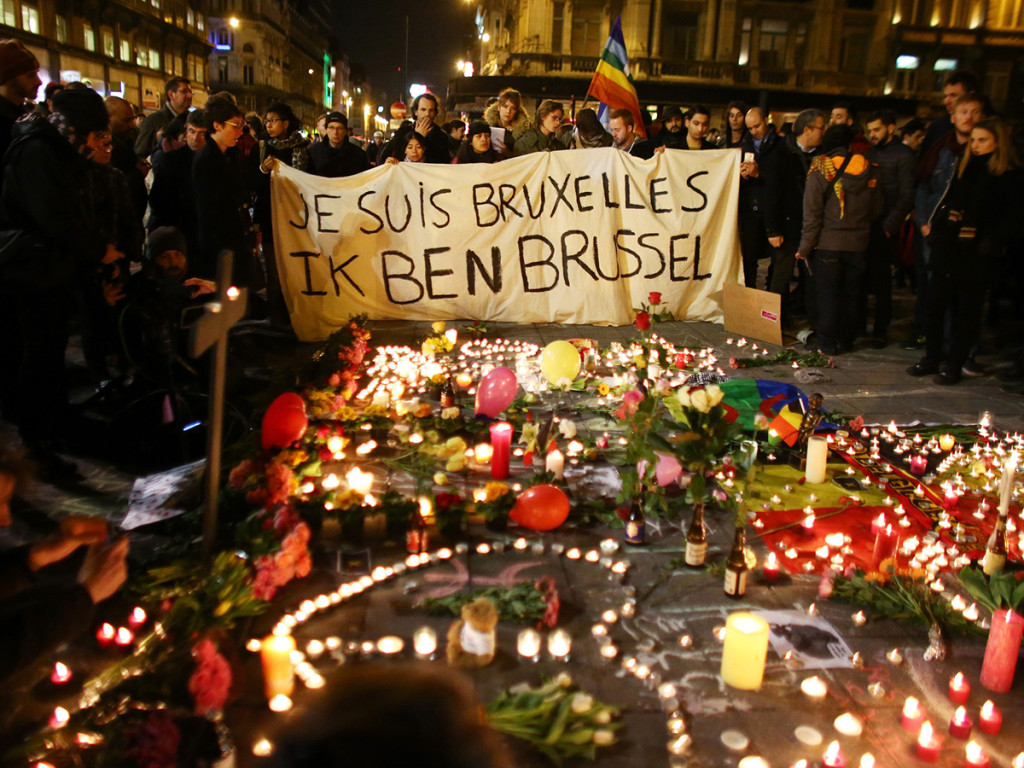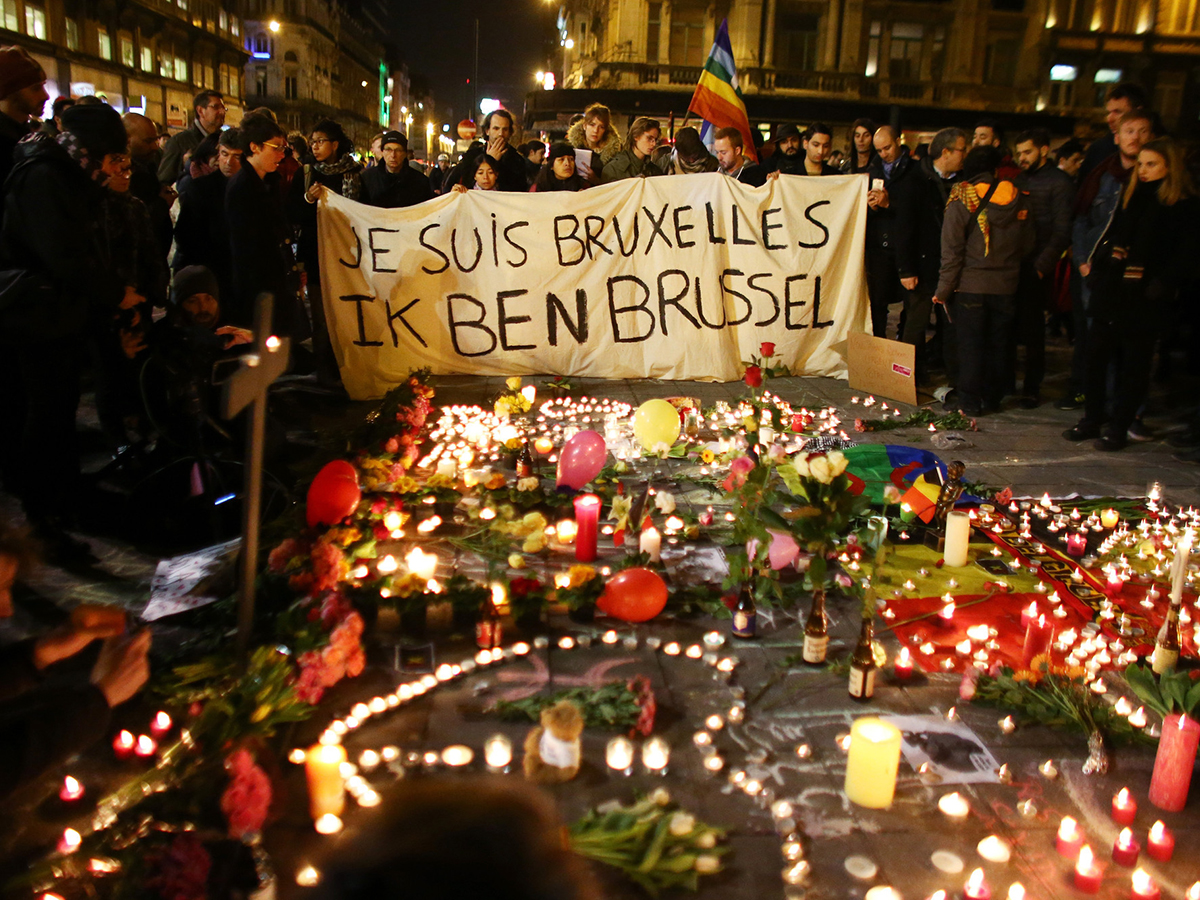
On March 22, the suicide bombings in Brussels demonstrated once again that the West is a possible target for terrorism and Islamic extremism. Here in America, however, we wrongly see ourselves as being safe and isolated from that possibility.
Terrorism is often seen as a kind of abstraction, something we might see on the nightly news in a Middle Eastern town that we’ve never heard about. Chances are, we won’t think about that event again because we don’t think it’ll happen itself here. Maybe we’ll vaguely recall the attacks on the World Trade Center and the Pentagon, but thankfully it’s not a daily fear.
So when we do hear about terrorism in the West, how do we react within our supposed safe haven? Well, maybe we’ll throw a flag filter over our profile picture if Facebook makes it convenient, or retweet a few sad images and hashtags.
There, we helped, right?
Now, using social media to express grief doesn’t make it superficial. But this clinical, routine process of merely “showing solidarity” with the victims is not nearly enough. Expressing grief publicly through candlelight vigils, prayers and other demonstrations is necessary and helpful to many who are impacted by the attacks. But these actions, by themselves, are insufficient.
The Brussels bombing wasn’t a wakeup call, nor was the bombing in Pakistan on Easter, nor was the Boston marathon bombing, nor was the San Bernardino shooting, nor were the attacks in Paris. They were reminders of the reality we should already know: Terrorism doesn’t just happen in the Middle East or in Africa — it can happen anywhere.
As groups like ISIS, Hamas, Hezbollah and others continue to exist, we need to accept that more attacks can happen here in America.
I’m not advocating constant paranoia or stockpiling a huge amount of guns and end-of-the-world survival kits. But, one simple action that we can do to prepare ourselves is just to maintain an awareness that it can happen.
From there, another good step is to learn how to react in a crisis situation. Not panicking, for example, as well as finding cover and safety, are good key points. Lists more comprehensive and detailed than mine can be easily found online.
I want to make it clear that I am in no way advocating or condoning any kind of undue suspicion of American Muslims. The Islamic State of Iraq and Syria (ISIS) is based off an extremist variant of Islam that is obsessed with establishing a global caliphate, or a government that rules according to Islamic law, and the end of the world.
A single branch of a religion doesn’t represent the views of every other denomination. Therefore, you cannot assume that any given Muslim necessarily supports ISIS, because ISIS fights for a specific branch of militant Islam.
The same goes for assuming that Americans of Middle Eastern descent support terrorist groups. The U.S. has been intervening in and at war with some parts of the Middle East since the early 20th century, but not every part. The term “Middle East” refers to over 20 countries and territories, not all of which the U.S. is at war with. It’s wrong to assume that someone is part of a terrorist group just because they are of Middle Eastern descent.
It’s completely unacceptable to mistreat or harass people just because of their ethnic descent or religious beliefs. Incidents like the recent vandalism of several offices in UCR’s ethnic studies department should never occur. Our focus should be on stopping future terrorist attacks on U.S. soil. Persecuting innocent people who have no ties to terrorist groups accomplishes nothing, except for sowing distrust and paranoia among our citizens.
We can be ready without being paranoid, and we can be patriotic without wrongly assuming that our countrymen are guilty just because of their religion or ethnic background. We all want to keep our country safe and free, and to do so we have to work together and have to be ready to protect it together.








